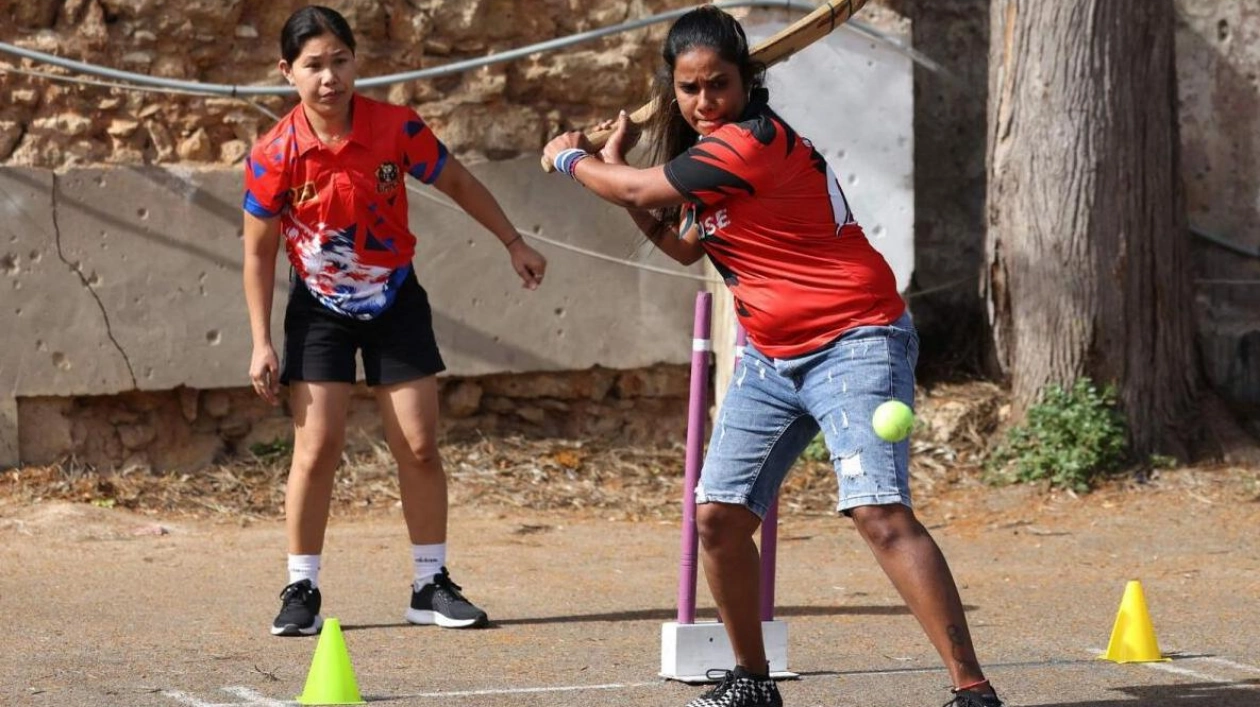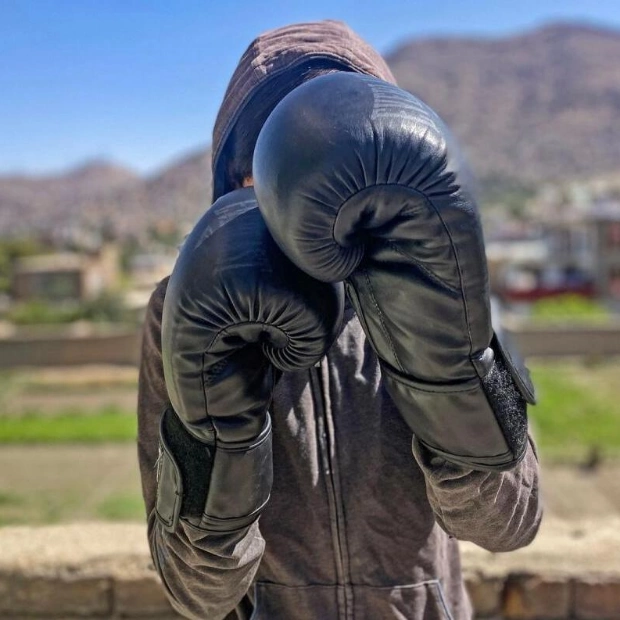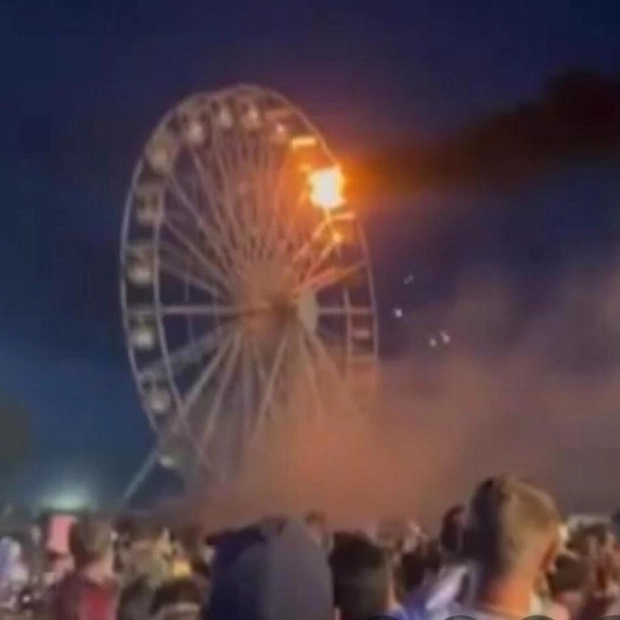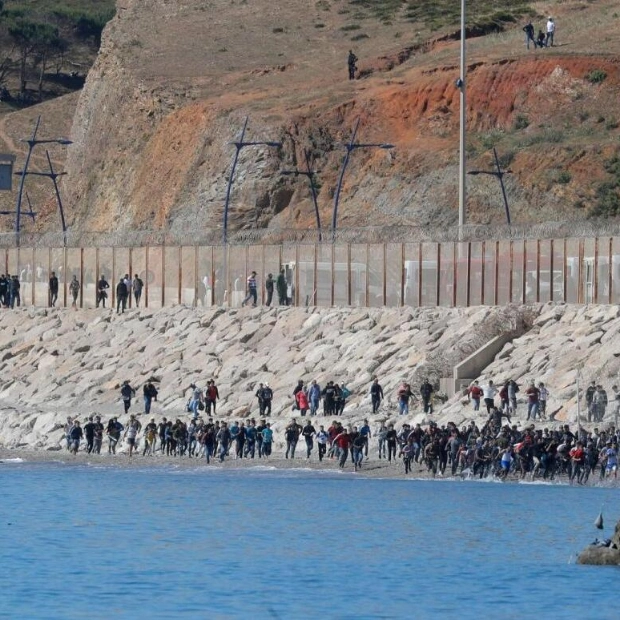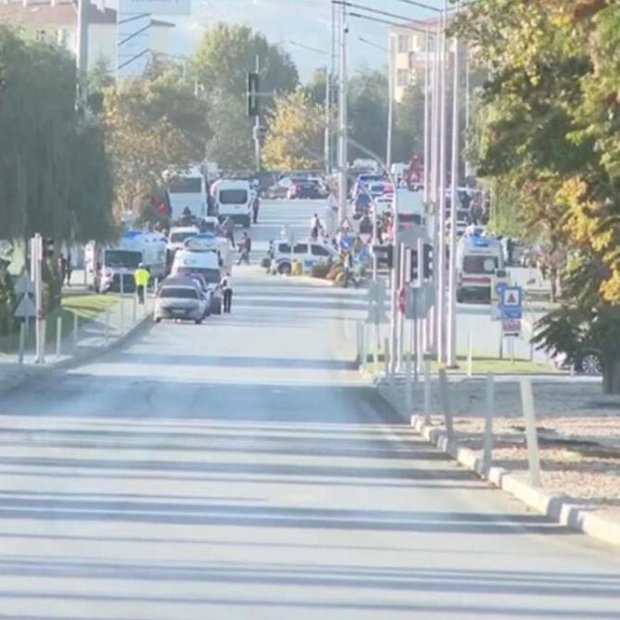In the turmoil engulfing Lebanon, migrant workers from nations such as Ethiopia, the Philippines, Sri Lanka, and Sudan have stepped out of the shadows as they seek refuge from Israel's relentless aerial assaults. The once serene parish of Saint Joseph of the Jesuit Brothers in Beirut now resonates with the cries of children. Weary women gather around tables, while others await their meals, all under the perpetual buzz of Israeli drones. Each day, more individuals arrive from the southern regions of Lebanon, the east, and the southern suburbs of Beirut. The church, which was previously a daytime haven for migrants, transformed into an overnight sanctuary when the Israeli air raids commenced, according to Brother Michael Petro of the Jesuit Refugee Service. News of the sanctuary spread rapidly among the displaced.
"A family from our church reached here and inquired if they could stay. We agreed, and by the next morning, 30 more people had arrived, followed by another 50," recounted the American Jesuit. "On the initial day, we contacted every shelter across the country. We couldn't secure space, either because they were already full or because we were informed that shelters would not accept migrants." Some families were eventually accommodated, and the parish now provides refuge to 52 migrants. Israel's bombing campaign in Lebanon has displaced hundreds of thousands. In the capital, displaced Lebanese are being housed in schools, shelters, or hotels, often in precarious conditions, with some still left to sleep on the streets. Migrants "also require assistance," emphasized Dea Hage Chahine, a Lebanese activist.
"They are treated as if they are invisible, like third-class citizens," she said indignantly, noting that migrant workers often "lack even their own passports" or basic rights. Kumiri Parara, a 48-year-old Sri Lankan, arrived days ago with her 12-year-old son, escaping the bombs in Sidon to the south. She has resided in Lebanon for 20 years, was previously married to a Palestinian, and found work as a domestic helper, a common occupation among her compatriots in the Mediterranean nation. Her employers in Sidon also fled, but she has not heard from them since. "No one seemed to care about me," she murmured, clad in a vibrant orange tunic. Her compatriot, Malani Somalatha, a 46-year-old cook, resided in south Beirut, a Hezbollah stronghold heavily targeted by Israel, where Hezbollah leader Hassan Nasrallah was reportedly killed on Friday.
"We abandoned everything and came here," she said, her voice breaking with emotion, adding that the restaurant where she worked has since closed. Lebanon is home to over 160,000 migrants, 65% of whom are women, according to the International Organisation for Migration's report last year. However, the actual number is likely higher, as many are undocumented or in legal limbo. Most are in Lebanon under the "kafala" system, a sponsorship process that regulates the presence of foreign workers. Susan Baimba, who arrived from Sierra Leone two years ago to work as a housekeeper near Sidon, fled to Beirut with her compatriots when the strikes began, initially sleeping on the streets before finding refuge at the Saint Joseph church. She attempted to join other Sierra Leoneans living in apartments in the capital, but "the landlords turned us away. They said, 'Go away, go away. We don't want any trouble,'" recounted the 37-year-old.
"All of us just want to return home because we are exhausted," she said. At the Saint Joseph parish, women and children are accommodated on the first floor, while men are housed on the second. Malika Joumaa, a 30-year-old Sudanese woman, left war-ravaged Darfur in 2014. A few days ago, she fled Arnoun in southern Lebanon with her husband and young daughter. She described a grueling journey—one-and-a-half days on a motorcycle, a night spent under a bridge near Beirut, and finally reaching the Saint Joseph. "I don't comprehend why war erupted in Sudan, and I don't understand why it has erupted here," she said.
